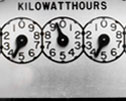With the historic health care law enacted by Congress in March continuing to receive less support in most public opinion polls, congressional Republicans have pledged to push to repeal the law if they make major gains in the House and Senate in the Nov. 2 elections. However, with President Obama in office for at least another two years, repealing the law in its entirety will be virtually impossible.
Republican leaders have indicated they likely will target specific components of the massive health care law for repeal on a piecemeal basis. This process already has begun, and some Democrats have indicated interest in reconsidering components of the health care law.
The Form 1099 provision
The first initiative to repeal a portion of the health care law is legislation by Sen. Mike Johanns (R-Neb.) and Rep. Dan Lundgren (R-Calif.) called the Small Business Paperwork Mandate Elimination Act (H.R. 5141/S. 3578). This bill would repeal a provision that greatly expands Internal Revenue Service (IRS) Form 1099 reporting for businesses.
Beginning in 2012, the provision requires all employers to provide a Form 1099 for every business-to-business transaction of $600 or more for property and services. The provision was added to the health care bill to raise revenue needed to help pay for the $1 trillion new entitlement program created by the law.
Expanded Form 1099 reporting means a small-business owner will have to file two forms—one with the vendor and one with the IRS—for almost every business-to-business transaction. In addition, because Form 1099 reporting requires businesses to include taxpayer identification numbers for the vendors they do business with, businesses also will have to spend time tracking down the number for each vendor requiring a Form 1099. Most small businesses lack the capability to track this kind of reporting. As such, this requirement will create a huge new tax compliance burden for small businesses.
Although the new tax compliance provision places a significant burden on small businesses, it is questionable whether the measure will increase tax compliance and generate revenue for the federal government. A report by IRS Office of the Taxpayer Advocate found "the new reporting burden ... may turn out to be disproportionate as compared with any resulting improvement in tax compliance."
Lobbying for repeal
NRCA strongly supports H.R. 5141/S. 3578 and is lobbying Congress to repeal the Form 1099 provision.
In September, Johanns offered an amendment in the Senate to repeal the Form 1099 requirement. At the same time, Sen. Bill Nelson (D-Fla.) offered an alternative amendment to modify the new requirement by exempting businesses with fewer than 25 employees, raising the dollar threshold from $600 to $5,000 and exempting credit card purchases.
NRCA and other business groups sent a letter to senators supporting the Johanns amendment and explaining the Nelson amendment "further complicates employer compliance responsibilities" and full repeal "is the only solution to relieve businesses from the expensive and burdensome new tax paperwork requirement."
Although neither amendment garnered the 60 votes needed to pass the Senate, it is clear members of Congress in both parties believe the Form 1099 provision must be repealed or substantially modified. The primary debate in Congress moving forward will be about how to offset the revenue loss to the government to avoid adding to the budget deficit.
As debate unfolds
If Republicans make major gains in the midterm elections, the chances for full repeal of the Form 1099 provision will dramatically improve. Moreover, this issue likely will be a harbinger of future battles regarding other components of the controversial health care law in coming years.
As the debate unfolds, NRCA will continue working to secure repeal of the Form 1099 requirement and other provisions of the health care law.
Duane L. Musser is NRCA's vice president of government relations.



